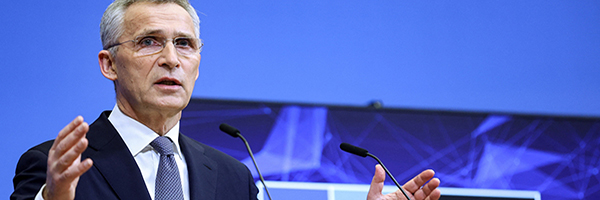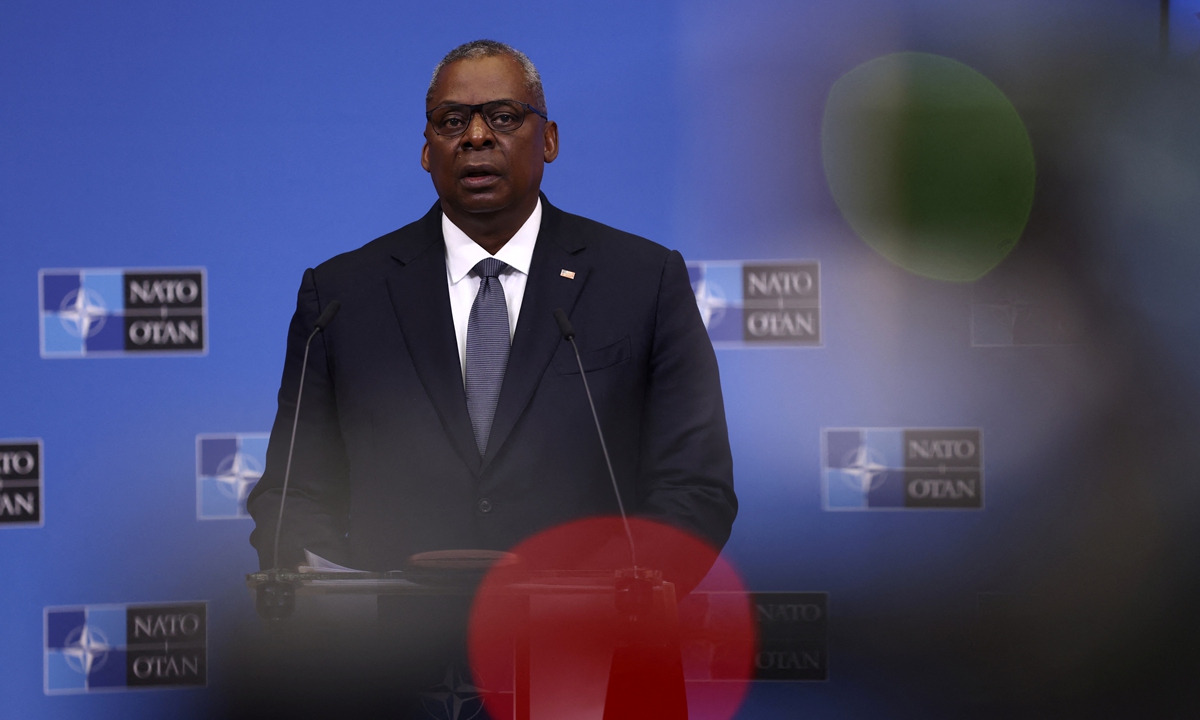NATO chief visits Asia, intends to bring ‘bloc-to-bloc confrontation in Europe’ to region

Stoltenberg, who is visiting South Korea and will also visit Japan on this trip, said at an event in Seoul on Monday that although China is not NATO’s adversary, it has come “much higher” on NATO’s agenda, citing China’s growing military capabilities and “coercive behavior in the region,” Reuters reported.
“We believe that we should engage with China on issues like arms control, climate change and other issues,” he said. “But at the same time, we are very clear that China poses a challenge to our values, to our interests, and to our security.”
Mao Ning, a spokesperson of the Chinese Foreign Ministry, responded to a question related to the NATO chief’s remarks at Monday’s routine press conference, saying that “On the one hand, NATO claims that its status as a ‘regional defensive alliance’ has not changed, but on the other hand, it continues to break through its traditional defense zones, and expands and strengthens its military security ties. Such related movements should arouse the vigilance of regional countries,” Mao said.
“We also hope that NATO can abandon its Cold War mentality and the concept of bloc-to-bloc confrontation, and do more things to benefit the security and stability of Europe and the world. We hope that countries in the region can stick to the right path of Asia-Pacific cooperation and work to maintain and promote world peace, stability, development and prosperity,” Mao noted.
Chinese analysts said that since the outbreak of the Russia-Ukraine conflict last year, NATO’s ambition of expansion has been boosted and strengthened, as the US-led military organization is seeking more influence outside the North Atlantic region.
In Europe, continued NATO expansion eventually resulted in a tragedy that is seriously damaging Russia and the EU, which are both competitors of the US in different fields, so in Asia, the US is planning to copy this model to provoke the same “bloc-to-bloc confrontation” to contain China, and also weaken the region’s economic development potential, which would not only be dangerous for China, but also pose a threat to all countries in the region, experts warned.
China and the majority of Asian countries will have the wisdom and capability to avoid the tragedy which has already befallen in Europe, and withstand the disruption from external forces, experts noted.

Lloyd Austin Photo: AFP
Being vigilant
US defense chief Austin also began a trip to South Korea and the Philippines on Sunday, a move that Chinese experts viewed as Washington’s latest effort to beef up military integration targeting China in the western Pacific, especially with the cost-effective way of using “allies” as its disposable pawns and vanguards.
Li Haidong, a professor at the Institute of International Relations at the China Foreign Affairs University, told the Global Times on Monday that the US and NATO are bringing “strategic impact” to the regions around China, which is very dangerous, as “these activities are intended to end more than 30 years of peace and prosperity enjoyed by Asia since the end of the Cold War.”
The Asia-Pacific region has remained peaceful in past decades despite multiple problems that could potentially break out, such as the Korean Peninsula issue, the Taiwan question, the South China Sea issue, and the China-Japan tension in the East China Sea.
The key reason is that China has enough strength to deter military intervention from external forces, and regional countries are willing to solve problems via consultation, experts said.
The US is trying to break this balance by hyping the “China threat theory” and the Cold War mentality, and regional countries should work together to oppose such attempts, analysts said. Fortunately, most regional countries are fully aware of this danger, and are making efforts with China to withstand the potential threat by boosting regional integration, experts noted.
Before Austin’s arrival, Philippine President Ferdinand Marcos Jr said to the Financial Times at the World Economic Forum in Davos earlier this month that he ruled out the reopening of the former US military bases of Subic Bay and Clark, saying it was against his country’s constitution to allow foreign bases on its soil.
Marcos visited China at the very beginning of this year, reaching agreements and achieving fruitful outcomes with China in fields including economy, trade, agriculture, and people-to-people exchanges, as well as infrastructure construction. The Philippines is a country that has learnt a bitter lesson of being used by the US to contain China, and its decision-making has reflected the vigilance shared by most regional countries on bloc-to-bloc confrontation, experts said.
From the Korean Peninsula to Southeast Asia, many countries such as Vietnam, Laos, and Cambodia, all share bitter memories of US military presence and activities in their territories, and they know what will happen if the region falls into the Cold-War style bloc-to-bloc confrontation again, analysts said.
Li said it’s crucial that China and its regional partners work together to boost regional integration, because once a community with a shared future in the region has been built, there will be no room for external forces to make trouble, and it’s also important for China to promote negotiations on a code of conduct related to maritime disputes in the region with other countries, so that they can effectively avoid conflict and miscalculation.
Song Zhongping, a military expert and TV commentator, told the Global Times on Monday that “NATO is a key tool that is used by the US to serve its hegemony, so it’s important for China to make diplomatic efforts to let regional countries, especially its neighbors, understand that NATO is a military organization driven by a Cold War mentality, and it could bring tensions and problems.”
Relevant count
